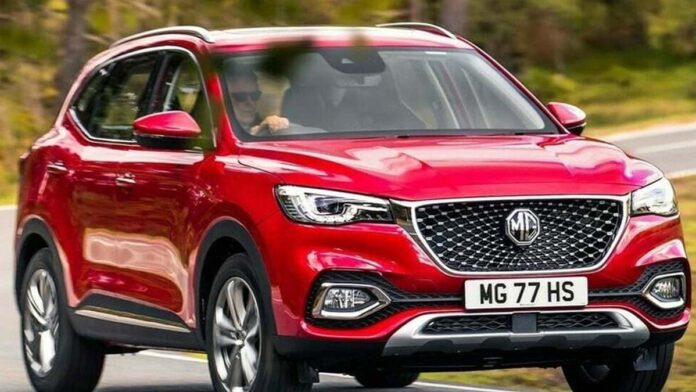MG Motors Pakistan said that it has received a manufacturing certificate from the government, paving way for its local assembly.
The company started booking orders of for its 1.5L Turbo Engine MG HS Essence from Monday at a price tag of Rs6.9 million, an official confirmed to Business Recorder.
The company has so far relied on the import of Completely-Built Units (CBUs) to sell its vehicles in Pakistan, with the price tag of its MG HS 1.5 Turbo at a whopping Rs8.9 million.
Read also: 2,380 new companies registered in Pakistan last month
“We have started taking orders for MG-HS Essence from Monday,” MG Motors General Manager Syed Asif Ahmed told Business Recorder. “For orders placed now, vehicles will be delivered in January.”
Ahmed added that the company will offer two new variants and a new model in 2023, declining to share further details as they were still “confidential”.
However, sources close to the company say the company plans to launch the MG-GT, seen as a competitor to the Honda Civic.
Its production facility has a standard annual capacity of 25,000 units, which can go up to 50,000, said Ahmed.
MG JW Automobile Pakistan is a joint venture between Saic Motor International (Smil), a subsidiary of Shanghai Automotive Industry Corporation (SAIC), and JW SEZ Group.
With an investment of $100 million, SAIC holds 51% shares in MG JW Automobile Pakistan, which intends to assemble vehicles under the brand name of MG at its assembly plant at the Raiwind Road, Lahore.
“MG Essence (locally-assembled) has an enhanced warranty of five years or 150,000 km, whichever comes first. For CBUs, it was four years or 100,000 km.”
MG Motors has so far sold 15,000 imported units in the country during the last two years. In contrast, competitor Hyundai Tucson has seen 9,700 units sold during the same period (December 2020 to November 2022).
He emphasised that MG is “not in the race to become the biggest player” in Pakistan.
“Like elsewhere in the world, each brand should have 10% to 15% market share to ensure healthy competition,” he said, noting that consumer expectations of safety features and warranty period have improved after the entry of new players in the automobile industry.
He stressed that it is high time that Pakistan benefits from its geographical advantage by accessing Central Asia, North Africa and Middle Eastern automotive markets.
“We are not a very attractive local market for global auto players, but we can surely become a vehicle-exporting nation,” he said.
Ahmed said Pakistan’s auto industry should stop looking towards the government for handouts and try to stand on its own feet.
“The only sustainable, long-term solution to the recurring crises faced by the auto industry is the export of made-in-Pakistan vehicles,” he said.
“We are already over-protected. I wouldn’t ask for blanket incentives to maintain the status quo. The only special incentive I would seek is on electric vehicles. It’s a new avenue,” he said.
Compact SUVs make up 30% of India’s market, 40% of China’s market and 50% of the US market, Ahmed said. In Pakistan, the market now stands at nearly 20%, according to recent data.

